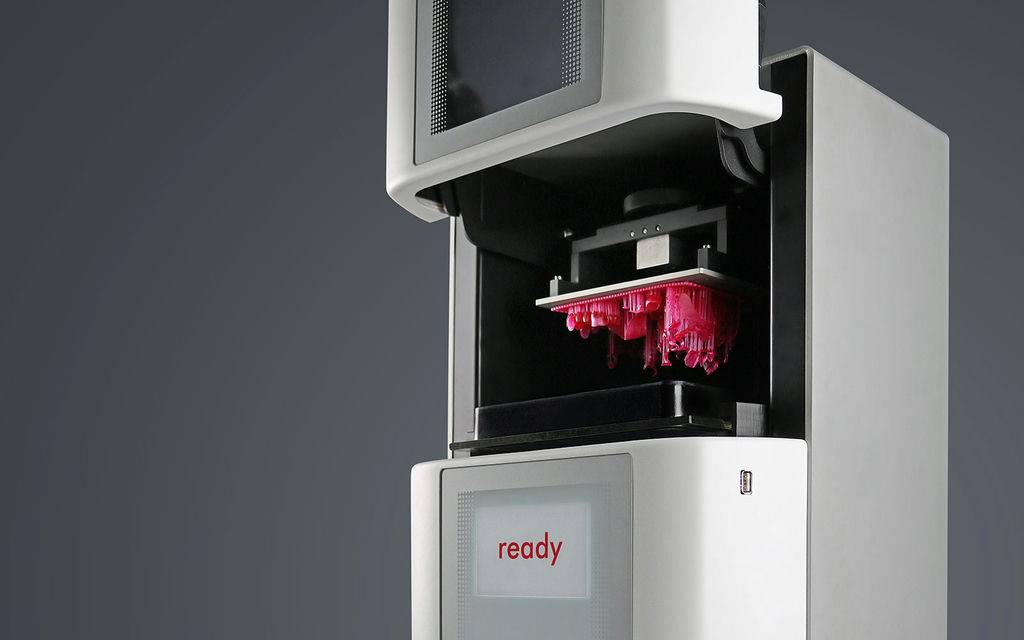German chemical company Henkel has joined an R&D project called SYMPA in partnership with Rapid Shape GmbH, cirp GmbH and others. The project, which is supported by the German Federal Ministry of Education and Research (BMBF1) and the Federal Ministry Republic of Austria Transport, Innovation and Technology (BMVIT2), aims to develop new materials, printing methodologies and post-processing technologies for stereolithography products. The joint SYMPA project, which launched at the end of 2018, will specifically focus on developing durable SLA parts using DLP processes for the automotive industry.
The SYMPA consortium brings together five partners from across the entire value chain of SLA technology:
> Henkel will offer its expertise in advanced SLA photopolymers;
> Rapid Shape GmbH offers high speed open 3D printing solutions that can be adapted for various end uses;
> The Institute of Aircraft Design (IFB) from the University of Stuttgart will provide expertise in lightweight construction and composite applications, including fiber reinforced SLA materials;
> Joanneum Research and INOCON Technologie GmbH will bring to the table their expertise in developing plasma technology for coating and activation (including deposition, post-processing and surface modification for improved mechanical properties, controlled wettability and electric conductivity);
> cirp GmbH will provide its experience as a 3D printing service provider to enable technology demonstrations for real automotive components.
The five partners—along with the funding organizations—see vast potential in the use of SLA technologies for automotive applications, especially in the production of custom parts and products. The SYMPA project aims to exploit this potential by addressing and overcoming existing limitations in the SLA process.
Existing SLA materials, for instance, have certain weaknesses, such as low mechanical properties, low durability and low UV stability, which hinder their adoption in the automotive milieu. One of the key areas of the project will be to develop new photosensitive polymers with increased long-term thermal and mechanical properties.
The SYMPA project also has objectives to improve fiber reinforcement of the polymer and surface modification technologies in order to enhance the environmental resistance of products. Ultimately, all the materials and technologies developed in the project will be demonstrated based on real automotive parts taking into account the requirements on industrial production processes.
The German-Austrian collaboration is coordinated by the IFB and has a three-year timeline, wrapping up at the end of 2021. The goal of the project is to end up with a preliminary stage SLA toolbox tailored for the automotive industry.


